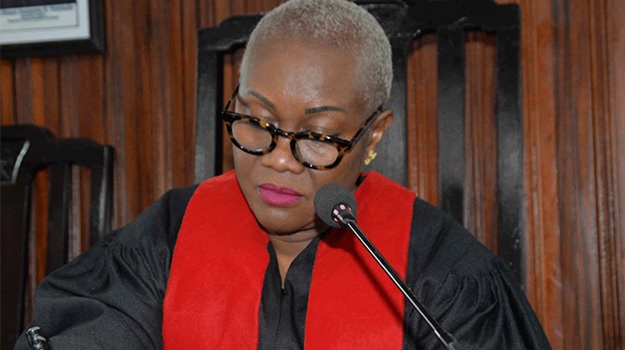MONROVIA – The Liberian Judiciary, through the Supreme Court, has forcefully rejected the US$20 million budgetary allotment proposed for the 2024 fiscal year, decrying the allocation as unfair, unjust, and detrimental to its operational capacity. In a strongly worded release issued on Wednesday, the Judiciary’s Public Affairs office highlighted its dissatisfaction following a series of unfruitful meetings with the leadership of both the Legislature and the Executive.
Despite these discussions, the other two co-equal branches of government have decided to allocate only 2.8% of the national budget to the Judiciary, while the Legislature and Executive receive significantly larger shares—13.84% and 83.86% respectively. The Judiciary expressed its frustration, emphasizing that such distribution undermines the principle of equality among the branches of government as enshrined in the Liberian Constitution.
The Judiciary reiterated its stance that it should not be treated as a subsidiary to either the Executive or the Legislature. It stressed that the three branches of government are designed to function independently yet equally, ensuring a balance of power that is crucial for a healthy democratic system.
In its statement, the Supreme Court acknowledged the constitutional mandate of the Legislature to appropriate funds but underscored that such powers must be exercised in a manner that respects the autonomy and operational needs of the Judiciary. The court cited Chapter VII of the Liberian Constitution and supporting statutes within the New Judiciary Law, which obligate the Legislative and Executive branches to provide adequate funding to enable the Judiciary to fulfill its constitutional duties effectively.
The Judiciary also referenced Article 34(d) of the Constitution, affirming that no provision should be interpreted in a way that nullifies or substantially impairs the functions of any branch of government. By allocating the Judiciary a mere 2.8% of the budget, the other branches are effectively impairing its ability to function.
The Supreme Court’s release further criticized the “cut-off” contingency amount of US$3 million, deeming it an inadequate response to the financial needs of the Judiciary. This amount, combined with the US$17 million base allocation, totals the disputed US$20 million, which the Judiciary finds grossly insufficient for its operations.
This budgetary dispute underscores the ongoing struggle for financial autonomy and respect among Liberia’s branches of government. The Judiciary’s rejection of the proposed allotment calls for a reevaluation of budgetary practices to ensure that all branches of government are adequately funded, respecting the constitutional framework and promoting effective governance.







